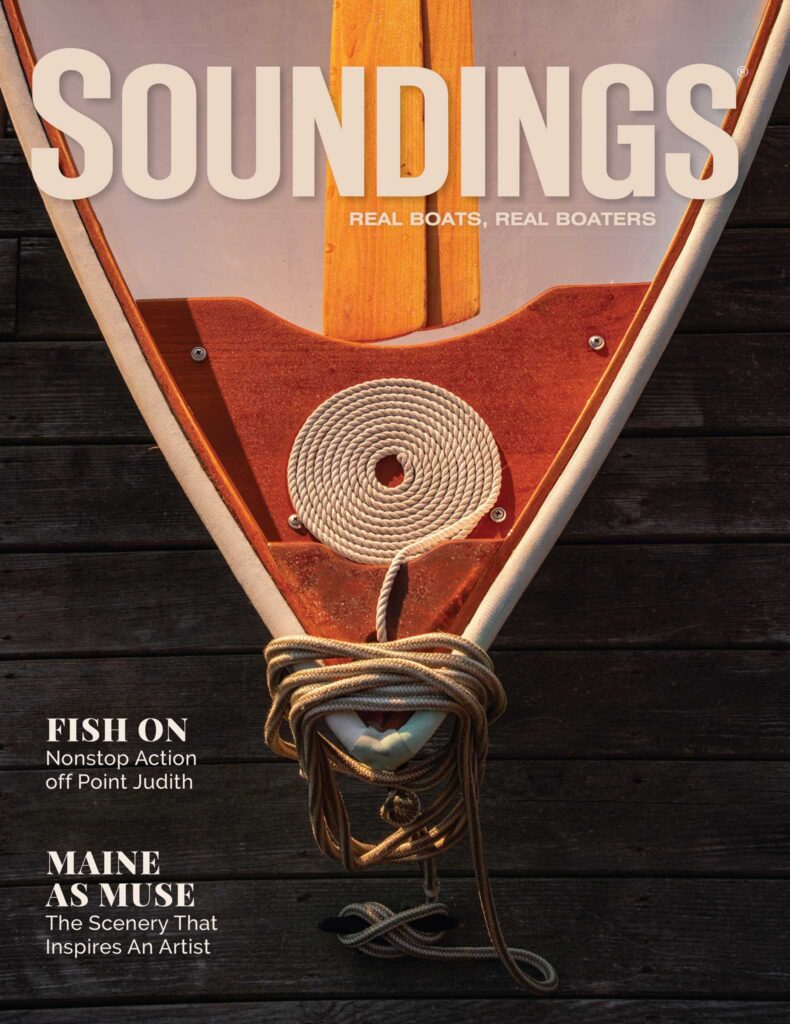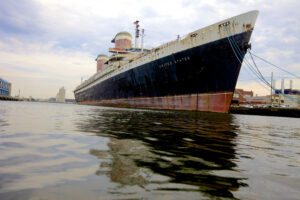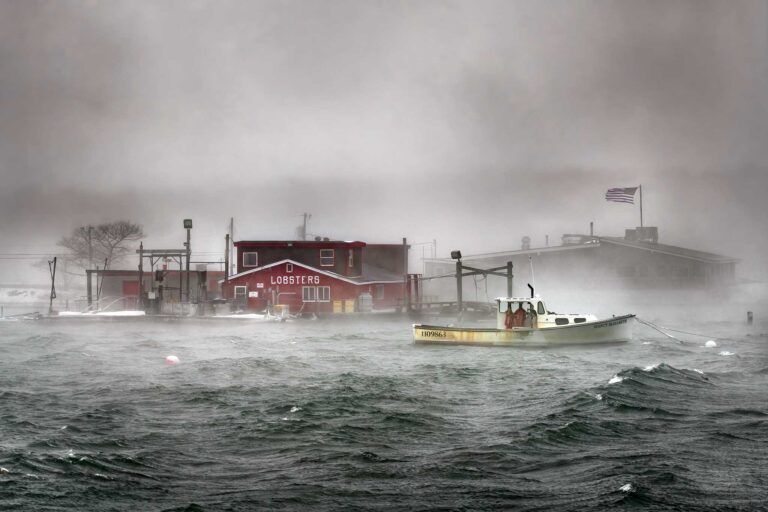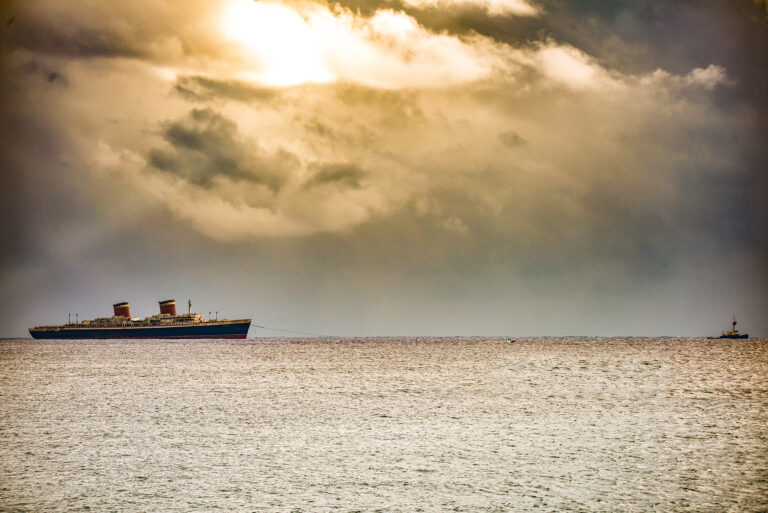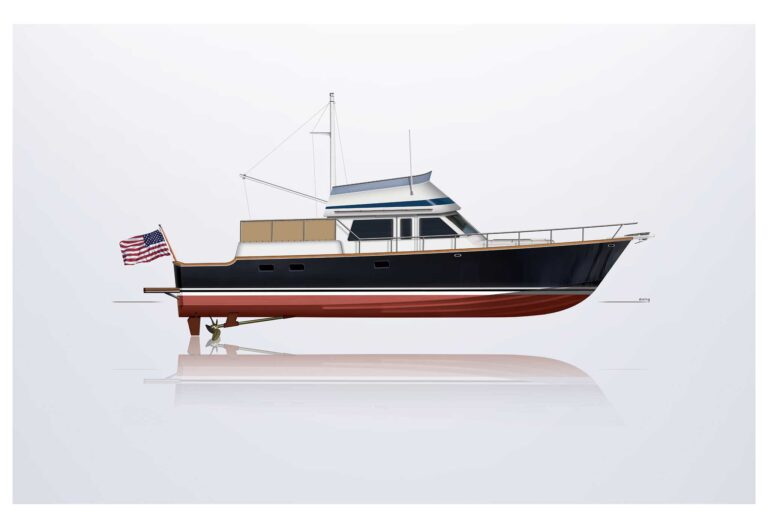Legislation would require owners of boats registered there to carry the coverage
Legislation would require owners of boats registered there to carry the coverage
New Jersey is poised to become the first state in the nation to require owners of all boats registered there to carry liability insurance.
The Donald W. McGloan law, named for a man killed in a 2002 boat explosion, was to be considered by the full state assembly in May. If passed into law, the measure would impose fines and, in some cases, jail time for boaters who fail to carry insurance. The legislation doesn’t specify which registered boats would be covered.
Until now, as in almost every other state, the only requirements for liability insurance have been imposed on New Jersey recreational boaters by some marinas and by lenders that finance boat purchases. (Utah and Arkansas have limited mandatory liability insurance laws. Arkansas requires coverage for boats with engines of 50 hp or more and for personal watercraft. Utah’s law is limited to PWC.)
“Right now, there is no guarantee that your family will be compensated in the event you are hurt or killed in a boating accident on New Jersey’s waters,” says assemblyman John Wisniewski, who co-authored the bill. “It is a glaring omission of law, and it must be corrected.” No other state has a boat insurance law, according to Wisniewski’s office.
Donald McGloan, the father of two college-age children, died June 22, 2002, from injuries after the boat on which he was a guest exploded at a dock in a Sayreville marina. Because the boat’s owner was uninsured, the accident left McGloan’s widow, Veronica, unable to support the continued college education of her children. It was a visit by Veronica McGloan to Wisniewski’s office that led to the pending legislation.
“She raised to me a set of facts that were disturbing, at least,” Wisniewski says. “Here they are, they lose the breadwinner, and they have no recourse. The one asset that the boat owner owns is at the bottom of the creek. It didn’t seem right that at this time — when people driving [automobiles] have third-party protection — [that] we don’t require this for boats.”
The story that Veronica McGloan told Wisniewski began when she answered the telephone that Saturday afternoon three years ago in her South Amboy home. She says she wasn’t home earlier that day when her husband of 22 years, Donald, 47, got an invitation to go fishing on a neighbor’s 28-footer, which was docked about a half-mile from the McGloan home. She says that in the past he had declined similar invitations from the neighbor, whose son was a friend of the McGloan’s son, Donald Jr., then 18.
“I got a call that the boat had blown up and that my husband was trapped inside the cabin, but the fire was out and they were trying to get him out of the cabin,” McGloan says. “I went right to the marina.”
When she arrived at the marina, she says, she found her husband on the dock, conscious, with third degree burns over three quarters of his body. She says she was told that other boaters, along with fire and emergency medical workers, had extinguished the blaze and helped him onto the dock.
“They flew him by helicopter to St. Barnabas Hospital in Livingston,” says McGloan. For the next day and a half, doctors struggled to keep him alive, but he succumbed to his burns. There were 300 mourners at the funeral of the longtime truck driver. When the ceremony was over, Veronica McGloan, a 19-year employee of Middlesex County, found herself with Donald Jr. poised to enter college in the fall and her 21-year-old daughter, Denise, a recent junior-college graduate, ready to move on to a four-year school.
“But that had to stop after the first semester because I couldn’t afford it,” McGloan says.
It was shortly after the funeral that McGloan says she discovered her predicament. She had talked with an officer of the New Jersey State Police marine unit and learned the specifics of the explosion. Her husband, who on his job drove tank trucks carrying hazardous, toxic and explosive fluids, had been in the cabin of the boat, which was powered by twin gasoline engines. The boat owner, identified as George Chafos, was in the cockpit and started the engines. Then the boat exploded, she says.
McGloan’s attorney, James McGovern, says that three marine surveyors he hired to examine the boat after the explosion blamed the tragedy on a leaking fuel line that Chafos had recently installed. McGovern says the surveyors determined that the boat’s bilge blower wasn’t on at the time of the explosion.
Chafos didn’t return a telephone call seeking comment.
Veronica McGloan says she had none of this information at first. “While I had [the trooper] on the phone, I said, ‘Can you please give me his [the boat owner’s] insurance information,’ ” McGloan says. “He said to me, ‘Ma’am, there is no insurance.’ My first thought was, Is that legal? Who doesn’t have insurance?”
The McGloans had owned boats in the past. There was a diesel-powered old clamming boat at one point, and at the time of the accident they owned a 16-foot outboard powerboat. “And, yes, we had insurance,” she says.
“I said, ‘Is this against the law?’ He said, ‘No.’ I said, ‘What about the marinas?’ He said that by law they don’t have to require insurance. It’s up to each individual marina. That was it.”
She went to assemblyman Wisniewski. “I knew this would not help me,” McGloan says. “I did it for others.”
McGovern says an arbitrator recently awarded Veronica McGloan $2 million. But he says Chafos has said, through an attorney, that he has no money and may file for personal bankruptcy.
“Clearly if the law in New Jersey had been as it is in automobiles — that there be mandatory insurance — she would have gotten something already,” says McGovern. “Insurance would have been paid a long time ago.”
Michael Sciulla, BoatU.S. vice president of government affairs, says his organization, also a major provider of marine insurance, supports the New Jersey legislation. Many boat owners already are insured by their homeowner policies, he says, and most who buy boat insurance get liability insurance, as well.
“Every state requires automobile owners to acquire liability insurance,” says Sciulla. “This [New Jersey legislation] is basically affording boaters the same protection. We think it’s appropriate and proper for boat owners to have protection from legal exposure.”
Monita Fontaine, who represents the National Marine Manufacturers Association, says that group has remained neutral on the New Jersey proposal.
The Donald W. McGloan Law would require owners of boats registered in New Jersey to carry liability insurance with a minimum of $100,000 coverage for one person injured or killed in an accident and $200,000 if more than one individual is harmed. Fines for failure to carry insurance would range from $300 to $1,000 for the first offense. The boater would face a one-year suspension of his or her right to operate a boat in New Jersey. The penalty after the first offense would include a fine of up to $5,000, a two-year suspension of boating rights, and a two-week jail term. All boaters would be required to carry insurance identification cards similar to those required for automobile drivers.
Wisniewski says he has talked with boaters who are opposed to the law. Most see the bill as “one more regulation,” he says. “One group of individuals who came to me said it’s going to make boating costs prohibitive. My response was it’s already prohibitive.”
The cost of insurance might be $150 a year, the legislator says. In comparison to the cost of filling a boat’s fuel tanks, that “seems to be a small price to pay,” he says.

